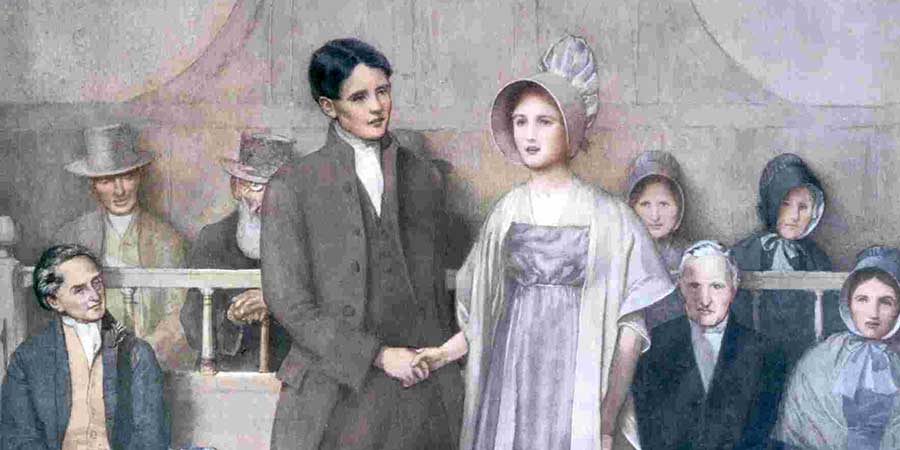When two people marry under the care of the Meeting, they join their lives in the expectation of a lifelong partnership, upheld by the constant presence of God and the support of the Meeting community. The traditional Friends’ marriage promises affirm this in a few words:
In the presence of God and these Friends, I take thee, (insert name), to be my (husband, wife, partner), promising, with divine assistance, to be unto thee a loving and faithful (wife, husband, partner) as long as we both shall live.
All aspects of a wedding in the manner of Friends serve to emphasize that the basis of marriage is a spiritual relation between the couple, supported by the community. Each partner seeks and speaks to that of God in the other. The ceremony takes place in the context of a Meeting for Worship. At the close of the Meeting for Worship all those present sign the marriage certificate, affirming the community’s participation in the wedding and responsibility for its nurture.
The following queries may be useful in helping a couple to decide whether marriage under the care of the Meeting is appropriate for them:
- Are we prepared to affirm the presence of God, and our hope and expectation of divine assistance, in our marriage?
- Do we see Friends Meeting at Cambridge as our faith community?
- Do we wish to be married in the manner of Friends: in a Meeting for Worship, conducted on the basis of silent waiting on God?
Cambridge Friends Meeting has affirmed that the relationships between persons of the same sex can be as committed and as holy as the heterosexual relationships that Friends have called marriage can be. Thus Friends intend to give the same loving care and consideration to bot same sex and heterosexual relationships. This includes marrying same sex couples who wish to be married under the care of the Meeting.
Not all members of the Meeting community are married under the care of the Meeting. For example, a member or attender may marry a partner who is not in unity with Friends’ beliefs about the spiritual bases of marriage. In such a case, a marriage in the Quaker style, but not formally under the care of the Meeting, may be appropriate. But in any case, the community extends its love and support whenever one of its members marries.
From the FMC Book of Current Practices, June 2010

